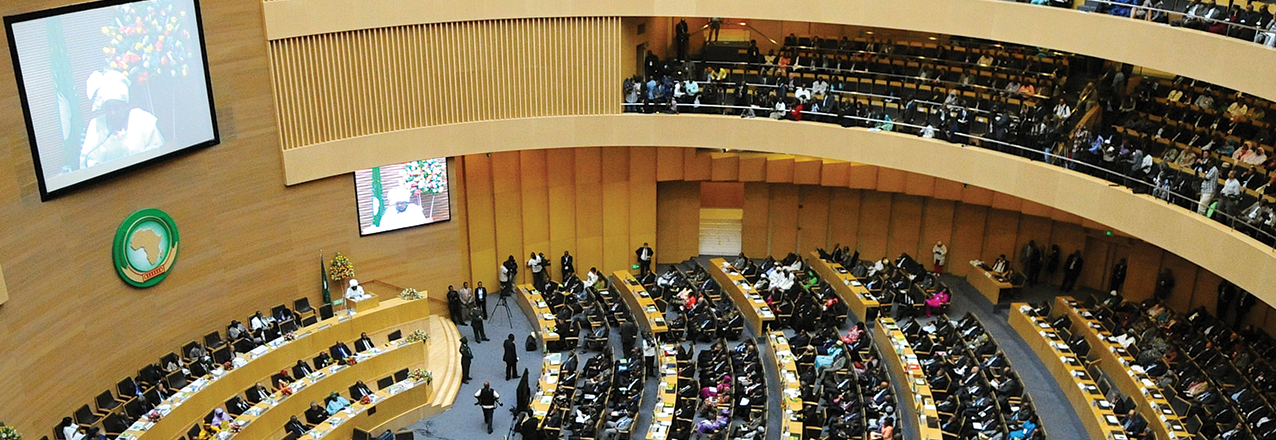Originally appeared on Africa Business Communities.
Eleven years since the establishment of the Land Policy Initiative, a ceremony was held in the presence of African Ministers and experts that launched the African Land Policy Centre (ALPC) in the margins of the second meeting of the AU Specialized Technical Committee (STC) on Agriculture, Rural Development, Water and Environment under the theme: “Enhancing environmental and agricultural transformation to achieve food and nutrition security in advancing Agenda 2063.”
Speaking at the launch, Josefa Sacko, AU Commissioner for Rural Economy and Agriculture welcomed the launch of the ALPC stating, “if the land is not well governed and sustainably managed we will not reach our set targets on increased agricultural productivity in accordance with the 2014 Malabo Declaration on Agriculture.”
“I strongly believe that our success in achieving the continent’s vision of transformed economies and prosperous Africans depends on our genuine ownership of targets, plans and actions towards this vision,” she said.
Ms. Sacko affirmed the decision by the Ministers attending the STC this week, who stressed that the African Land Policy Centre, “needs to be stronger in capacity and reach than the LPI, in order to support Member States to domesticate AU Decisions in their efforts to develop land policies, reform institutions and build land information systems to improve the governance of land.”
For his part, Stephen Karingi, Director of the Capacity Development Division at the ECA spoke on behalf of the Executive Secretary, Ms. Vera Songwe and said, the launch of the ALPC marks an important milestone in the implementation of the 2009 AU Declaration on Land Issues and Challenges in Africa, which called for the “establishment of an appropriate institutional framework to provide coordination of the follow-up activities and facilitate mutual learning by member states as they develop and review their land policies.”
“The African Land Policy Centre will serve as a means to strengthen and sustain Africa’s capacity to coordinate Member States and other actors in the implementation of the AU Declaration on Land Issues and Challenges,” he added.
Established in 2006 by the ECA, African Union Commission and the African Development Bank, the Secretariat of the Land Policy Initiative (LPI) has been hosted by the ECA with a small staff of experts charged with providing technical inputs on a number of initiatives, notably, the implementation of the AU Declaration on Land in accordance with the Framework and Guidelines on Land and other activities aimed at building evidence and reaching consensus towards improving land governance for economic and social transformation, improving environmental management and enhancing peace and security.
Between 2012 and 2013, the ECA provided technical input to the Secretariat as it led in consultations towards a study that produced recommendations to establish the Centre and presented to the inaugural African Union Specialized Technical Committee in 2015.
“Today, we are making an important step to implement the STC decision to establish and capacitate the African Land Policy Centre to provide leadership, coordination, build partnerships and promote policy advocacy in support of member states,” she said.
The Centre is expected to work closely with Member States to build sex-disaggregated databases to track commitments through the monitoring and evaluation of land governance in Africa beyond the 12 Member States currently implementing the Monitoring and Evaluation of Land in Africa (MELA) project – a pilot study to track progress in the implementation of the African Union Declaration on Land Issues and Challenges.
ALPC will continue the work begun by the LPI, such as strengthening capacities of universities through the Network on Land Governance in Africa (NELGA) to improve training, research and monitoring. In addition, following the endorsement by the STC this week of the Guidelines for the Development Curricula on Land Governance in Africa developed by the LPI, the ALPC will continue the work of improving the quality of land professionals to address Africa’s realities.
“Through land governance programmes in our Regional Economic Communities, we shall have a stronger mechanism to respond to Member States’ needs,” said Karingi.
The African Union’s STC concludes its work on Friday. It aims to review the relevant strategic goals and linkages in ongoing agriculture, rural development, water and environment related initiatives and their implications on the achievement of the overarching goals set out in the ten-year implementation plan of Africa’s Agenda 2063, to transform Africa.
Learn more at UNECA.


